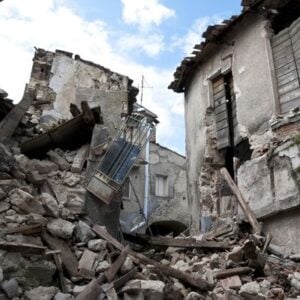The World Health Organization (WHO) has donated infection prevention and control (IPC) materials to Sierra Leone’s national health authorities to strengthen the country’s response to mpox in schools. This contribution, part of WHO’s ongoing support since Sierra Leone declared mpox a Public Health Emergency in January 2025, brings the total financial and technical assistance provided to USD one million. The supplies, mobilized through the WHO African Regional Office, include hand-wash sets, basic IPC commodities, 30-liter buckets with covers, receiving buckets, stand stools, waste bins, and hand-wash detergents. These items are earmarked for health facilities and schools in hotspot districts to help prevent the spread of mpox among students, teachers, and health workers.
With the backing of WHO and partner organizations, reported mpox cases in Sierra Leone have dropped from an average of 17 new cases per day to seven, representing a 58% reduction. Since January 2025, over 6,800 suspected cases have been recorded, with more than 5,200 confirmed, 56 deaths, and over 5,100 recoveries. The decline underscores the effectiveness of the measures implemented, including surveillance, case management, vaccination services, and public health interventions.
WHO officials emphasized the timeliness of the donation as schools reopen. Dr. Thompson Igbu, Cluster Lead for Communicable and Non-communicable Diseases, highlighted the organization’s commitment to safeguarding schoolchildren and healthcare teams. The donated IPC materials will be distributed nationwide to reinforce hand hygiene practices and infection control in educational settings.
Sierra Leonean authorities welcomed the support, noting its crucial role in protecting students, particularly in secondary and tertiary institutions, who are among the most affected groups. Dr. James Squire, Incident Manager for the mpox response, expressed gratitude for WHO’s ongoing financial, logistic, and technical assistance, which has been essential to achieving the current reductions in cases.
Since the outbreak began, WHO has been actively involved in the response, providing technical expertise, building the capacity of health workers, enhancing laboratory and surveillance systems, supporting data management and risk communication, deploying national African Volunteer Health Corps teams, and supplying medical resources and vaccination services. The latest donation further strengthens these efforts, ensuring that school children remain safe as educational institutions reopen.
The success of WHO’s mpox response in Sierra Leone has been made possible through generous support from international donors, including the FCDO, GAVI, and the foreign ministries of Denmark, the Netherlands, and Germany. Sustained funding, however, remains critical to fully halt the outbreak and achieve zero new cases.






